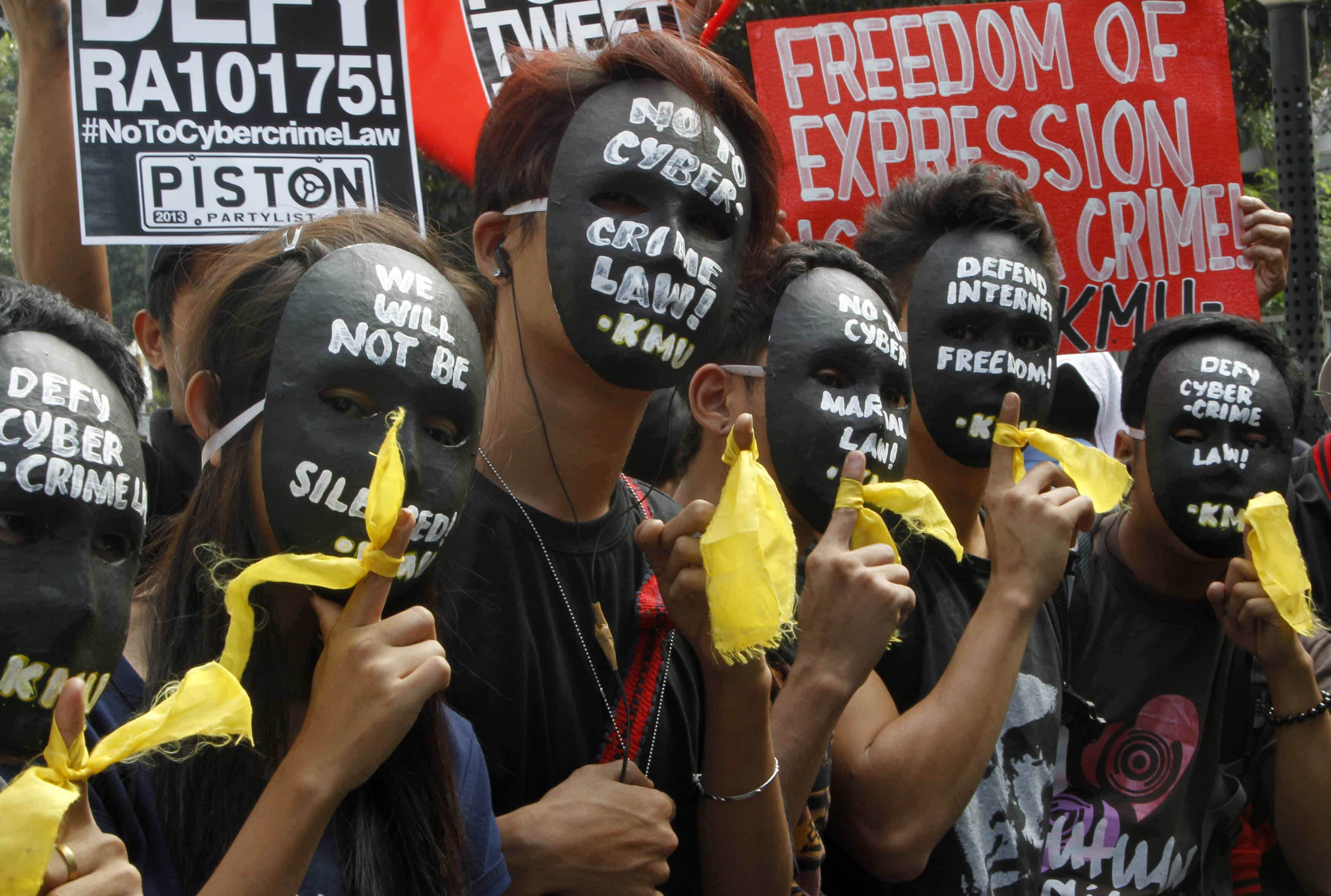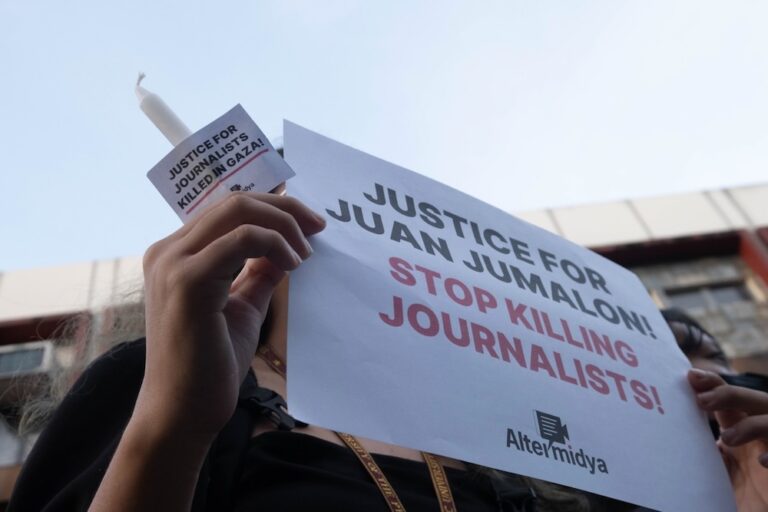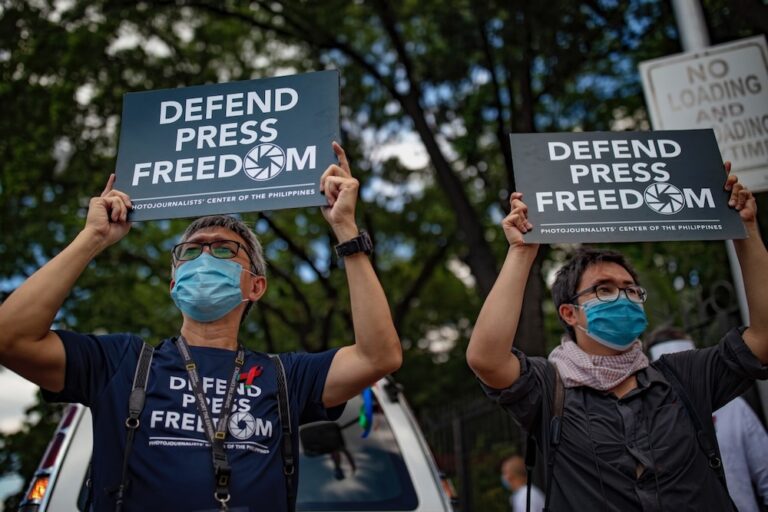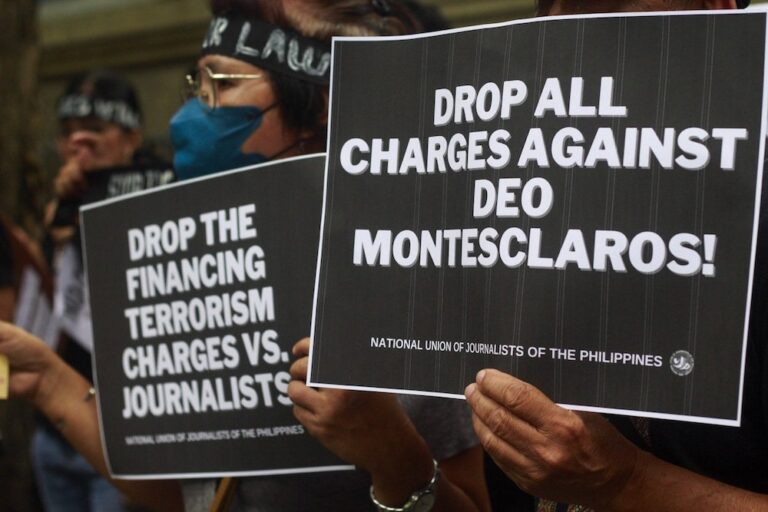Ruling considered a victory for free expression in the Philippines, but law still retains one of most problematic provisions.
The February 18, 2014 ruling of the Supreme Court declaring key provisions of the Cybercrime Prevention Act of 2012 (RA 10175) unconstitutional is a victory for free expression. But its declaring the provision on libel committed through the Internet constitutional retains one of the most problematic provisions of the Act.
In 2012 CMFR asked for the repeal of the Act and the crafting of a less restrictive law. While crimes committed over the Internet such as child pornography need legal sanctions, the Cybercrime Act throws such a wide net it penalizes even legitimate expressions of opinion online.
According to Supreme Court Chief Public Information Officer Theodore Te, the Court declared unconstitutional the RA 10175 provisions on unsolicited commercial communications (Section 4c3), real-time collection of traffic data (Section 12), and blocking access to computer sites found in violation of the Act (Section 19). It also declared the section on aiding and abetting, and attempting to commit cybercrimes (Section 5), and the section on liability under other laws (Section 7) unconstitutional with respect to certain crimes defined in Section 4 of the law, notably with respect to libel and child pornography because other laws already penalize these crimes.
The Court upheld the constitutionality of the provision on libel (Section4c4) when applied to the original author of the material in question. Although the Court made it clear that the provision would not apply to anyone who comments on material that may later be deemed libelous, the original author would still be liable to imprisonment of as much as, say some lawyers, to twelve years.
The Act adopts the 82-year old Revised Penal Code (RPC) provisions on libel, but raises the penalties by one degree, from a minimum of six months’ imprisonment in the RPC per count of libel to a minimum of six years. The Court decision not only legitimizes the higher penalties for online libel; by implication it also declares the original libel law constitutional.
The libel provisions of the RPC have been problematic for free expression and press freedom since 1932, when the RPC was implemented, primarily because of the penalty of imprisonment, which has been used in many instances to silence journalists. The libel law has also been declared excessive by the United Nations Human Rights Committee, which in 2011 asked the Philippine government to review the law towards eliminating the penalty of imprisonment. In 2012, in what looked like a government response to the demand for the decriminalization of libel, the Cybercrime Prevention Act instead made the libel provisions of the RPC part of the sanctions against online libel and in addition raised the penalties.
The Supreme Court decision is in short a partial victory for free expression. Libel as provided for in the RPC thus remains today as problematic as it has been for over 80 years to press freedom and free expression, and in addition has become an even bigger constraint on free expression when committed online.



